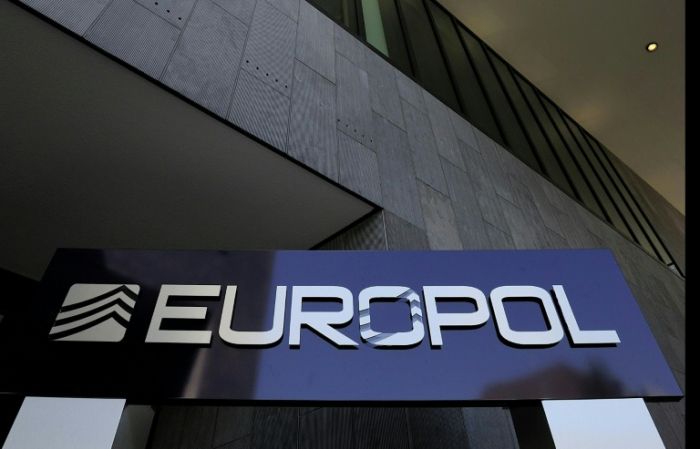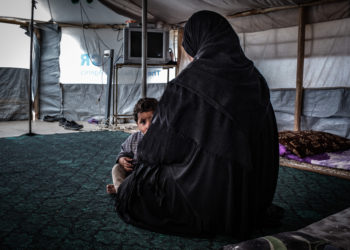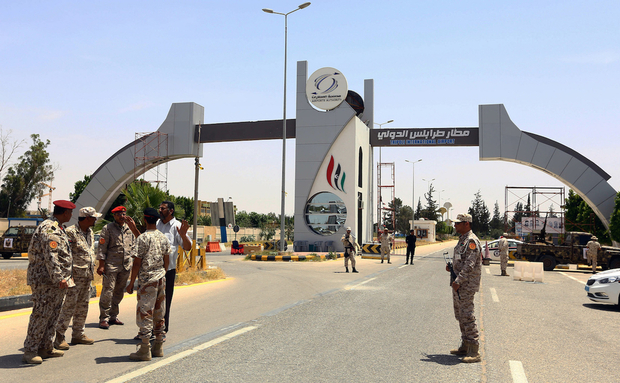European and U.S. police forces have struck at the heart of Islamic State’s propaganda machine, seizing servers and “punching a hole” in its ability to spread its radical jihadist message online.
The transatlantic takedown was spread over eight countries and was coordinated by the EU’s police agency in “a major operation over a two-year period,” the head of Europol, Rob Wainwright, told AFP on Friday.
Wednesday and Thursday’s operation was the latest in a campaign targeting in particular the Amaq news agency used by ISIS to broadcast claims of attacks and spread its message of jihad.
Today's international take-down with @Europol shows our global strength and unwavering resolve to fight against terrorist content online. Daesh is losing territory on the ground and online. We will not stop until their propaganda is entirely eradicated from the Internet. https://t.co/m62bYHvlpO
— Dimitris Avramopoulos (@Avramopoulos) April 27, 2018
“With this takedown action, targeting major IS-branded media outlets like Amaq, but also al-Bayan radio, Halumu and Nasher news, IS’s capability to broadcast and publicise terrorist material has been compromised,” Europol said in a statement.
The “simultaneous multinational takedown” was coordinated by Europol from its headquarters in The Hague, and led by the Belgian federal prosecutor.
“Dozens and dozens” of police fanned out in their countries, seizing servers in the Netherlands, Canada and the United States as well as in Bulgaria, France and Romania.
‘Technically Challenging’
The goal was “to destabilise this apparatus by seizing and dismantling servers used to diffuse IS propaganda and to identify and arrest its administrators,” the Belgian prosecutor said in a statement.
“With this groundbreaking operation we have punched a big hole in the capability of IS to spread propaganda online and radicalise young people in Europe,” Wainwright said.
Britain’s Counter Terrorism Internet Referral Unit was also involved in identifying “top-level domain registrars abused by IS,” and the Bulgarian interior ministry confirmed “access was blocked to four servers, used for disseminating information” by Amaq in its country.
“It was so technically challenging that we were only really able to do it because of our experience in major cybercrime takedowns,” Wainwright told AFP.
“We basically ran the cyber playbook against IS,” he said, adding police forces around the world had spent years gathering intelligence to locate the servers being used by the jihadists.
‘Squeezed’ in Battle and Online
While a U.S.-led international coalition has been combatting ISIS on the battlefields of Iraq and Syria taking back territory it had seized in 2014, nations have also warned that a multi-pronged effort was needed, including choking off funding and its online access.
“They’ve been squeezed on the battlefield, and now they’ve been really badly squeezed, badly hit, on the online platform as well,” said Wainwright.
ISIS used Amaq to claim “every major attack since 2015 in Europe,” he said, including the deadly assaults in Paris, Brussels, Barcelona and Berlin.
“The technical infrastructure which allows it to put these terrible propaganda videos and messages out has been knocked offline,” Wainwright told AFP, speaking on his last day as Europol chief. But Europol’s investigation is still ongoing, and arrests could follow.
At its height, the ISIS media portfolio included smartphone apps for children, websites, and a glossy magazine, full of post-apocalyptic prophesies and articles declaring the “caliphate” was the only legitimate and viable home for Muslims.
But as ISIS’s structure has crumbled, its media empire has waned too. Al-Bayan radio, which once broadcast on frequency mode and offered a wide range of statements, news and talks in several languages, had long moved online and reduced its activities.
On Friday, however, Nasher news — the main Telegram account on which Amaq statements are posted in the region — remained active, claiming jihadist fighters had damaged three Syrian army vehicles in fighting in southern Damascus.
“We are realistic in recognising that there still might be a retained possibility of re-establishing the network,” Wainwright said, highlighting that this week’s action was the third in a series of such takedowns. “But we’re getting stronger every time, and narrowing the space for them to re-create their online presence.”























